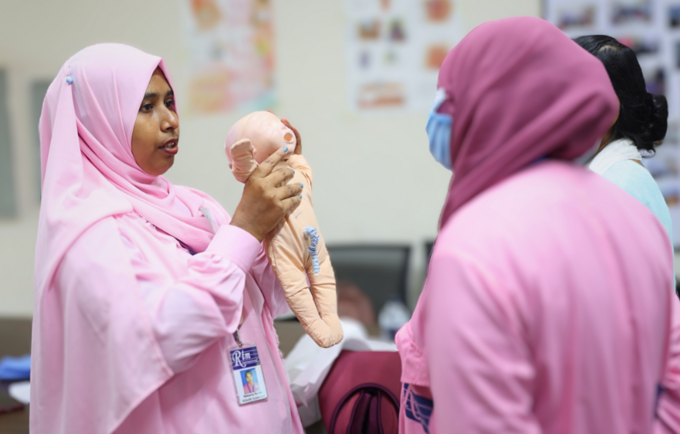“My journey is fueled by a simple but powerful belief: no mother should ever have to fear childbirth. I am committed to teaching, learning, and ensuring that every birth is a moment of joy and not a moment of sorrow.”
In the heart of a bustling refugee camp in Cox’s Bazar, Bangladesh, where every day presents new challenges and opportunities, there exists someone in the world of maternal and child healthcare. Meet Roksana, a supervisor of midwives, whose journey is not only inspiring but also an example of the transformative power of training and dedication. As we look further into her story, we discover the impact of the United Nations Population Fund’s (UNFPA) training programs and how they've equipped many midwives like Roksana to save lives and uplift communities.
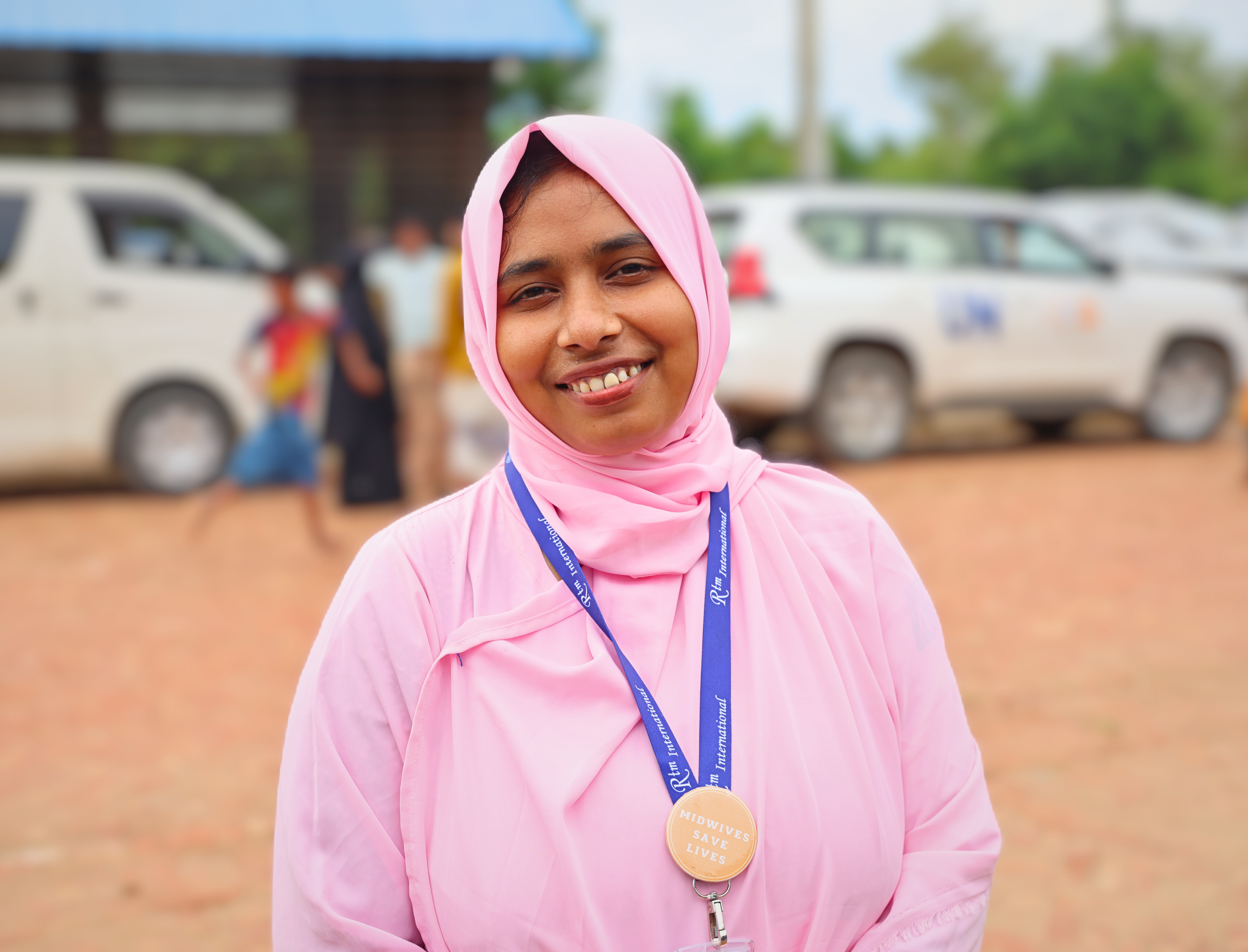 Photo: UNFPA Bangladesh/ Nusrat Mahmud Ananna
Photo: UNFPA Bangladesh/ Nusrat Mahmud Ananna
Roksana's journey to becoming a supervisor of midwives began as a dedicated midwife in the Rohingya refugee camp without a midwife supervisor. Her path was illuminated by the story of an international midwife mentor who visited her facility to provide midwifery mentorship to her other coworkers. This encounter inspired Roksana to pursue a career as a supervisor, recognizing it as an opportunity to showcase her leadership qualities. She worked hard to pass the supervisor exam, driven by her love of teaching and a desire to make a lasting impact.
UNFPA's Training: Turning Theory into Practice
Before the advent of UNFPA's training programs, midwifery knowledge was primarily theoretical for Roksana. However, the introduction of Midwifery Life Saving Training was a game-changer. It allowed midwives to engage in simulation exercises, transforming theoretical knowledge into practical skills. This newfound capability to handle life-threatening conditions such as severe bleeding raised blood pressure in pregnancy, infections, and newborn resuscitation has been incredibly helpful. Roksana has also grown as a mentor herself, facilitating these training sessions to share her knowledge and skills with fellow midwives.
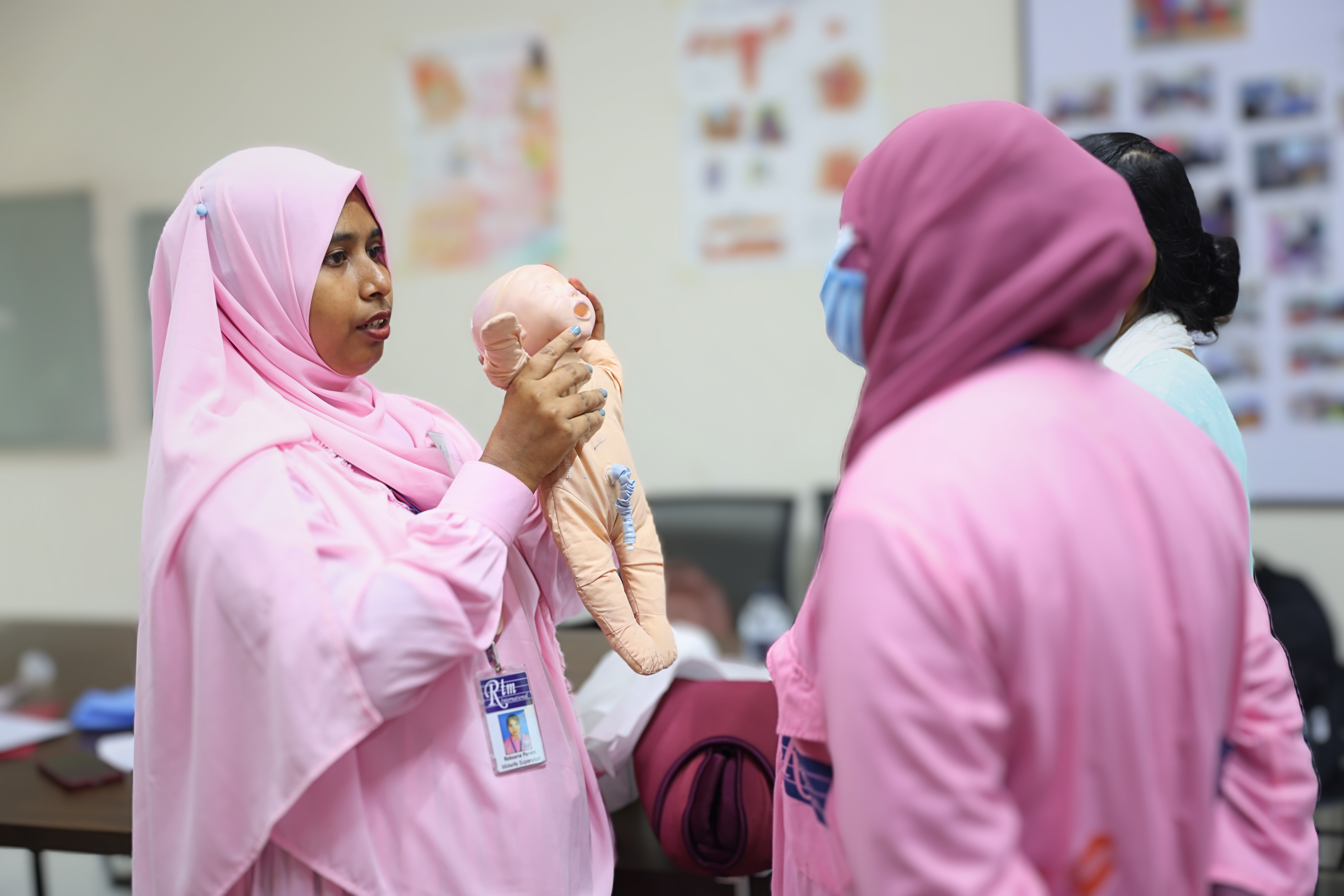 Photo: UNFPA Bangladesh/Nusrat Mahmud Ananna
Photo: UNFPA Bangladesh/Nusrat Mahmud Ananna
Building Trust, Transforming Communities
Roksana's role extends far beyond clinical care; it's about building trust and delivering respectful maternity care. Her approach has created a positive environment in the community she serves. Mothers seek her out when they are ready to give birth, trusting her expertise and care. Community health workers refer to her as "Boro Apa (Elder Sister)," a term of respect and endearment, a testament to the trust she has earned.
Being a supervisor of midwives comes with its own set of challenges. Roksana faces issues such as the lack of simulation dummies or models, making some mentoring situations challenging. UNFPA, as the Sexual and Reproductive Health Working Group (SRHWG) lead, has liaised with the World Health Organization (WHO) and is delivering the essential Midwifery Lifesaving Skills training at a government-run facility located within Cox's Bazar Medical College. This training utilizes state-of-the-art laboratory equipment, creating an optimal environment for midwives to engage in real-time simulation exercises.
Additionally, there is a shortage of midwives, leading to a rush of patients in her facility, limiting the time available for proper mentorship. Despite these hurdles, Roksana's commitment shines through as she seeks creative solutions to continue delivering quality care.
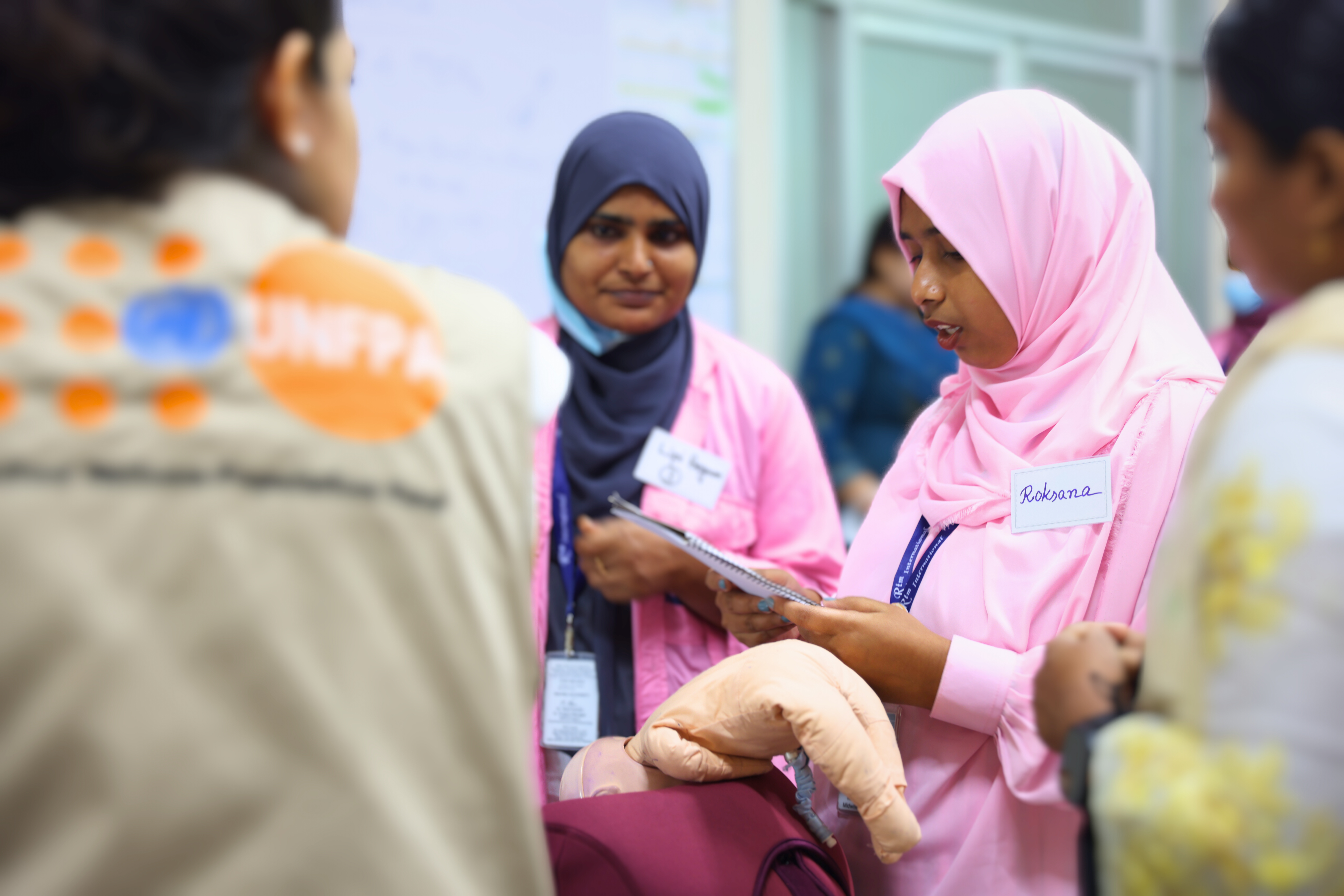 Photo: UNFPA Bangladesh/Nusrat Mahmud Ananna
Photo: UNFPA Bangladesh/Nusrat Mahmud Ananna
While exact maternal mortality data is unavailable in the refugee camp, the impact of UNFPA's training programs is evident. Facility-based deliveries have risen significantly, from 22% in 2018 (BRAC’s Humanitarian Response in Cox’s Bazar Strategy for 2018) to a remarkable 82% (Health Sector Bulletin - Aug 2023) in 2023. This increase reflects the growing skills of midwives through training and mentorship, ultimately saving lives and improving health outcomes.
According to the International Midwifery Mentors at UNFPA Bangladesh, Ms. Ana Velez, and Ms. Christine Eloto, by the end of September 2023, UNFPA has implemented 11 sessions for UNFPA implementing partners and 3 sessions for the Sexual and Reproductive Health Working Group partners. Additionally, 2 sessions in Bhasan Char were also conducted. They have reached over 285 midwives in the Cox's Bazar and Bhasan Char areas. There has been a significant improvement in self-perception of confidence to respond to obstetric and newborn emergencies. On average, before the training, 49% of participants felt extremely confident in responding to emergencies, versus 74% after the training.
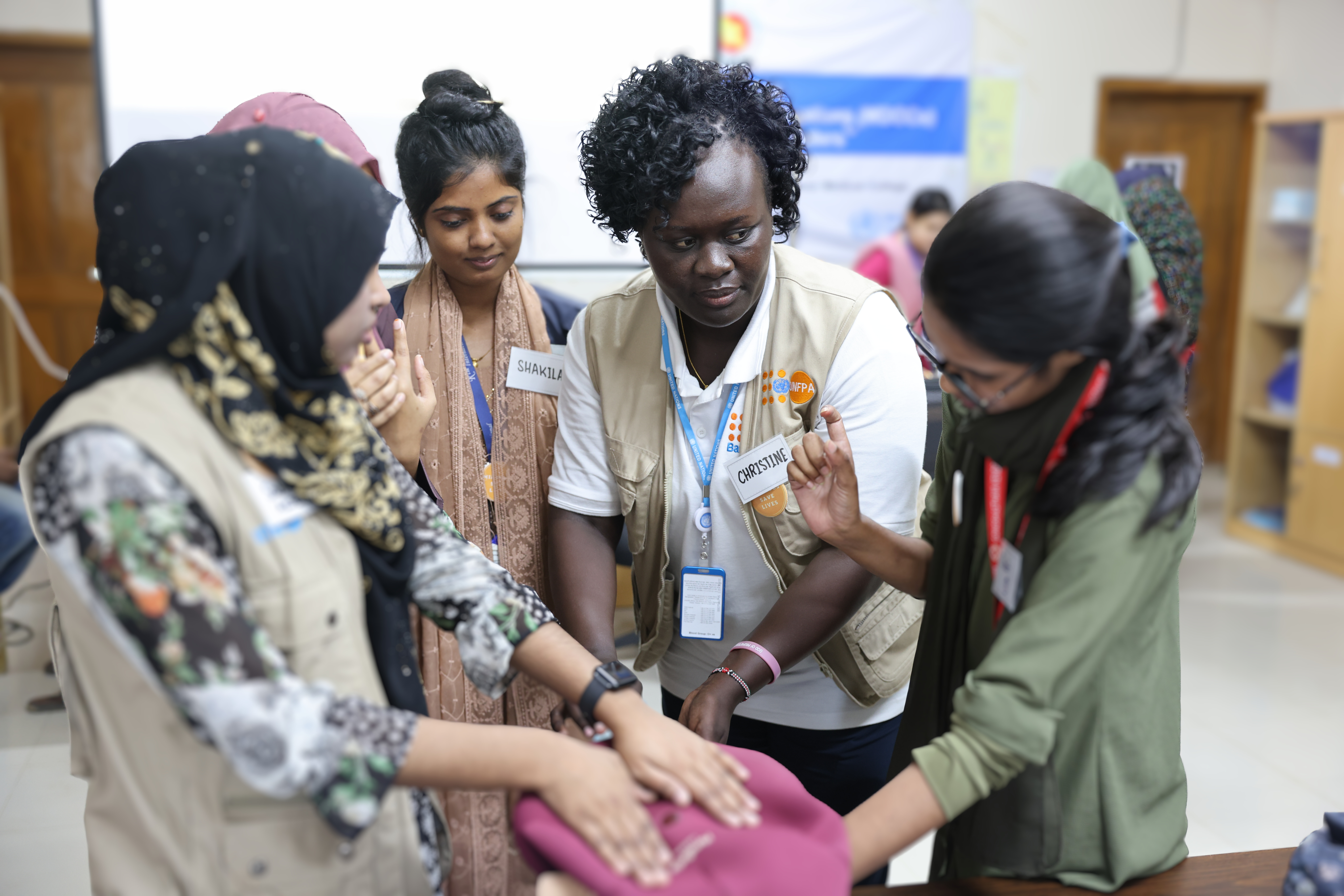 Photo: UNFPA Bangladesh/Nusrat Mahmud Ananna
Photo: UNFPA Bangladesh/Nusrat Mahmud Ananna
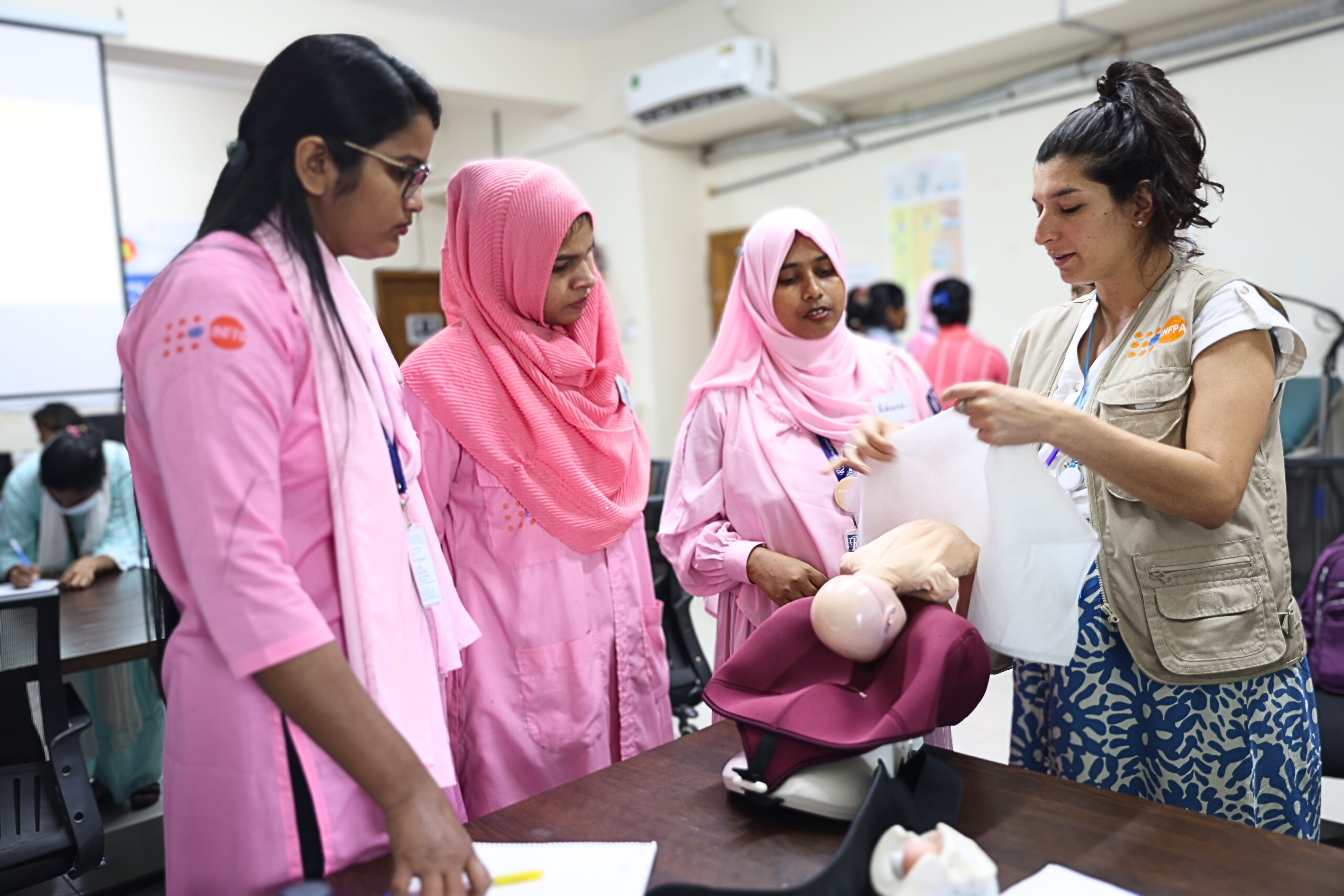
Photo: UNFPA Bangladesh/Nusrat Mahmud Ananna
A Heroic Moment: Saving a Mother's Life
Among the many stories that stand out, one particular incident shines brightly. A pregnant woman arrived at Roksana's facility unconscious and bleeding profusely. Her vital signs were alarming, and it was diagnosed as a shock due to an incomplete abortion. With quick thinking and skilled hands, Roksana and her team initiated the Non-pneumatic Anti-shock Garment (NASG), administered oxygen, established an IV access to stabilize the woman, and arranged an immediate referral to a field hospital. The mother required three units of blood, and for three days, the NASG remained a lifeline. Through their expertise, Roksana and her team saved a mother's life, a testament to the life-saving impact of their training.
A Vision for the Future
As Roksana looks ahead, her goals are clear: to continue developing the skills of midwives through mentorship, providing respectful maternity care to her community, and enhancing her mentoring abilities through ongoing knowledge updates. Her vision is rooted in the belief that every mother should experience a safe and joyous childbirth, and she remains steadfast in her mission to make this vision a reality.
In Roksana, we find not just a midwife supervisor but a hero who embodies the spirit of compassion, dedication, and lifelong learning. UNFPA's training programs have not only equipped midwives with skills but have empowered them to be beacons of hope, changing lives and communities one birth at a time. Roksana's story serves as a powerful reminder of the incredible impact that dedicated midwives can have, and her journey inspires us all to strive for a world where every birth is a moment of celebration and not sorrow.
